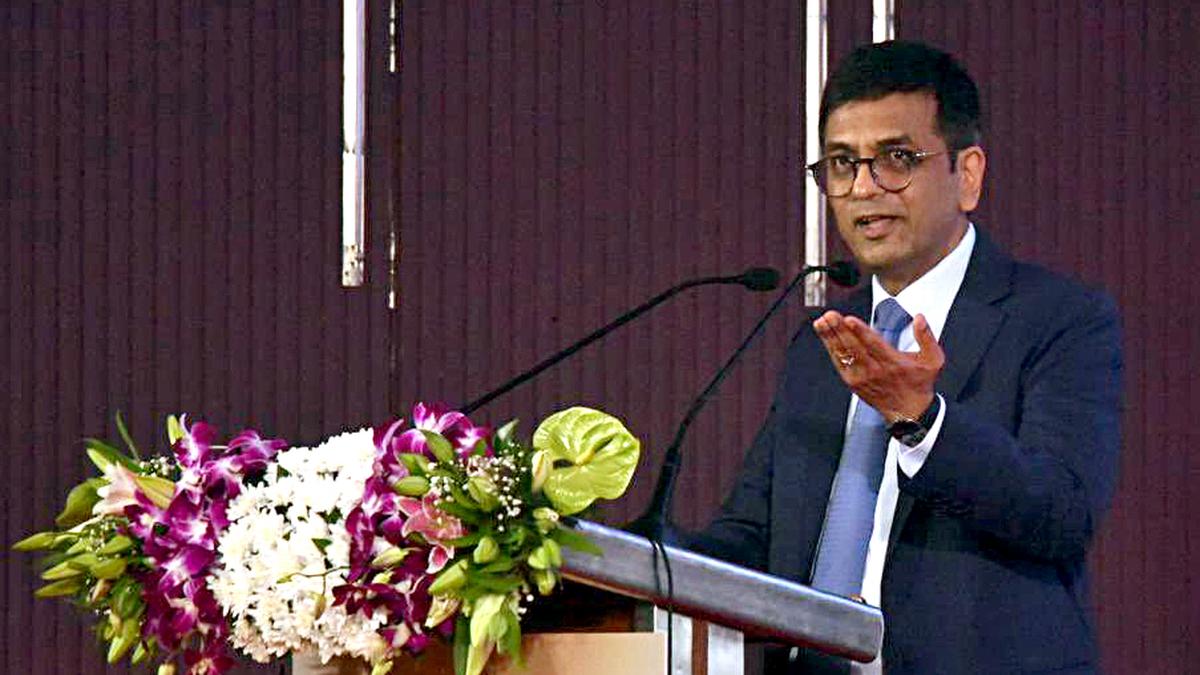
Constitutional doctrine evolves with society, no generation can claim monopoly over it: CJI
The Hindu
Chief Justice discusses M.K. Nambyar's constitutional legacy, emphasizing the evolving nature of the Indian Constitution beyond original intent.
Chief Justice of India (CJI) D.Y. Chandrachud on Thursday (September 26, 2024) said constitutional doctrine evolved with the society, and no generation, including the present, could have a monopoly over solutions or confidence in its ability to foresee the future.
The Chief Justice was delivering the M.K. Nambyar Memorial Lecture on the topic ‘Foresighted Mr. M.K. Nambyar — Constitutional Journeys Beyond Original Intent’. The lecture was organised by Nambyar’s son and former Attorney General of India, senior advocate K.K. Venugopal. Judges, both sitting and former, of the Supreme Court and High Courts along with senior and junior members of the Bar were in attendance. The Chief Justice shared the dais with Mr. Venugopal, senior advocates C.S. Vaidyanathan and Krishnan Venugopal. Senior advocate Gopal Sankaranarayanan also participated in the organisation of the annual event.
Nambyar’s vast accomplishments in the field of law include arguing the A.K. Gopalan case in which he propounded the ‘due process of law’ standard in Article 21 and drawing up the lead petition in the Kesavananda Bharati case which introduced the Basic Structure doctrine. The Chief Justice even traced the source of the recent Supreme Court decision striking down the electoral bonds scheme back to Nambyar’s argument in the A.K. Gopalan case that fundamental rights did not operate in silos but were interlinked with each other.
In his address, the Chief Justice said the greatness of jurists like Nambyar lay in their uncanny talent to read between the jurisprudential lines without being fixated with the “supposed original intent of the framers” of the Constitution. They travelled beyond “obsequious obedience of the supposed intent of the framers”.
“Nambyar demonstrated that the solution lies between a complete abandonment of their [Constitution framers] vision and its uncritical acceptance. While he was meticulous in his understanding of the intent of the framers, he was never overcome by it,” the Chief Justice said.
The CJI said the Indian Constitution had thrived over the years as a ‘living document’. It had refused to have its provisions interpreted in a fixed manner, according to their “original understanding at the time of its adoption, giving primacy to the purported intent of the framers”.
“Originalism” may leave a Constitution dated.





















 Run 3 Space | Play Space Running Game
Run 3 Space | Play Space Running Game Traffic Jam 3D | Online Racing Game
Traffic Jam 3D | Online Racing Game Duck Hunt | Play Old Classic Game
Duck Hunt | Play Old Classic Game











